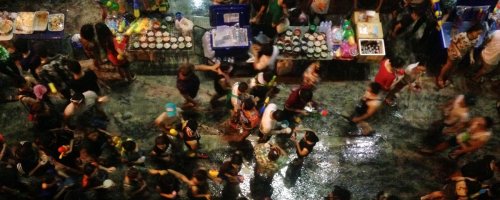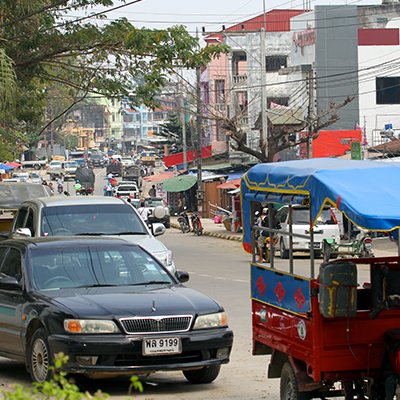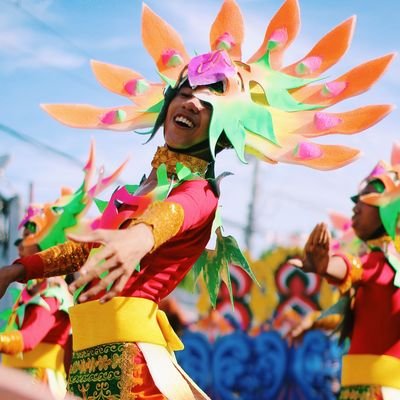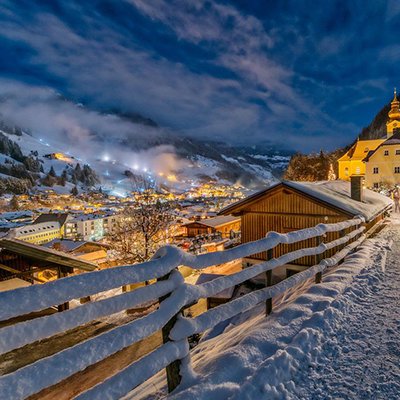The word "songkran" is derived from a Sanskrit word meaning "astrological passage" referring to change or transformation. It is aligned with the rising of the Aries astrological sign and as with many New Year dates of South and Southeast Asia, think Buddhist/Hindu solar calendar. Like most Asian ceremonies it has mythical origins involving scriptures, the number 7, a young boy solving riddles and a God's head being paraded by 7 daughters to save the world from catastrophe.
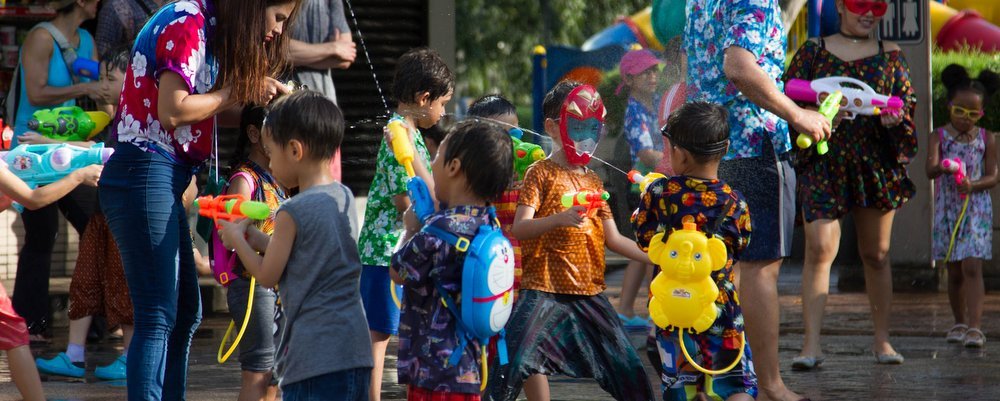
Songkran is celebrated throughout Thailand and known internationally as the biggest water fight in the world. This is when the dry season ends and the smell of sweet rain is in the air bringing with it the monsoon season that will cloak the dry ground in lush tropical greens of every shade. Lightening will flash across the skies and the boom of thunder claps rival the incessant crackling of firecrackers.
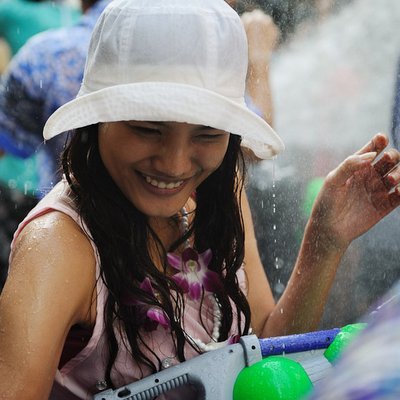 In the central region this is the time when the locals clean their houses, dress up in colorful clothing, otherwise traditional dress and make "merit" such as offerings to the temple, releasing birds and fish and some even let their buffaloes loose.
In the central region this is the time when the locals clean their houses, dress up in colorful clothing, otherwise traditional dress and make "merit" such as offerings to the temple, releasing birds and fish and some even let their buffaloes loose. - In the south of Thailand there are 3 Songkran rules: work as little as possible and avoid spending money, do not hurt other people or animals and do not tell lies.
- In the north Songkran is celebrated in the noisy fashion of gunfire and crackers to repel bad luck, locals make merit and bathe Buddha statues, plus pour water on the hands of their elders and ask for their blessing.
- Again merit is made at the local temples throughout the eastern region and specially prepared food is given to the elderly members of the family.
Songkran is also celebrated by the Malaysian Siamese community located in the states of Kedah, Kelantan, Penang, Perak, Perlis and Terengganu, as well as northeastern areas of India and in Bizu, Boisuk, Shangrai plus Boisabi in the Chittagong Hill Tracts of Bangladesh.
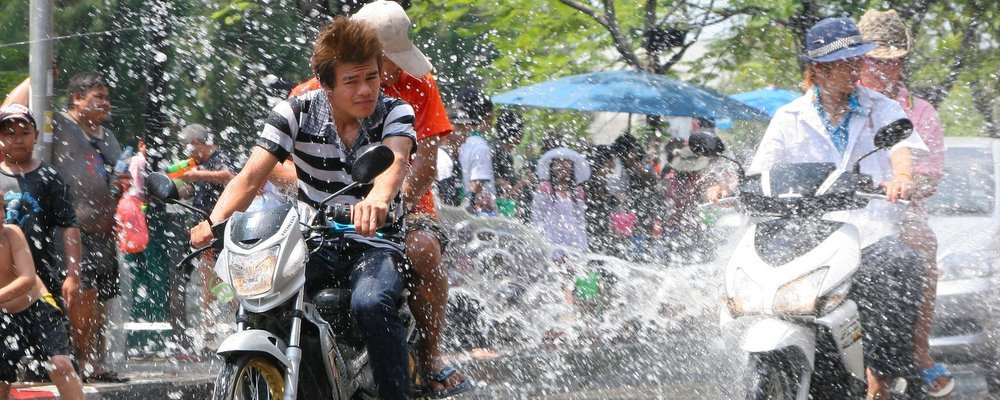
The iconic ritual of the day, that has now become a weekend of frivolity or in Chiang Mai's instance the water lashings can last a whole week, is the throwing of water. Originally it was a mere drop or 2 to represent the washing away of one's sins and bad luck, but this has degenerated into an all-out water war with sometimes the added pleasure of being on the receiving end of a fistful of flour. Street parades are held, copious amounts of alcohol is consumed and tourists either relish the silliness of it all and the respite from the often soaring temperatures when being doused in water, or grumble and complain and run back to their accommodation. Attire for the day may depend on where you are from swimwear to loud and lurid floral shirts.
The local Thai people celebrate by showing their generosity in food-laden tables along roadsides and in bars (think tom yum, barbecued chicken skewers, curries of all kinds and sticky rice) where music blares and the dastardly concoction of Thai whiskey is liberally handed around in shot glasses.
The police turn a blind eye to the shenanigans and the local water trucks go up and down the alleys and side streets spraying all with huge hoses.
Songkran Travel Tips
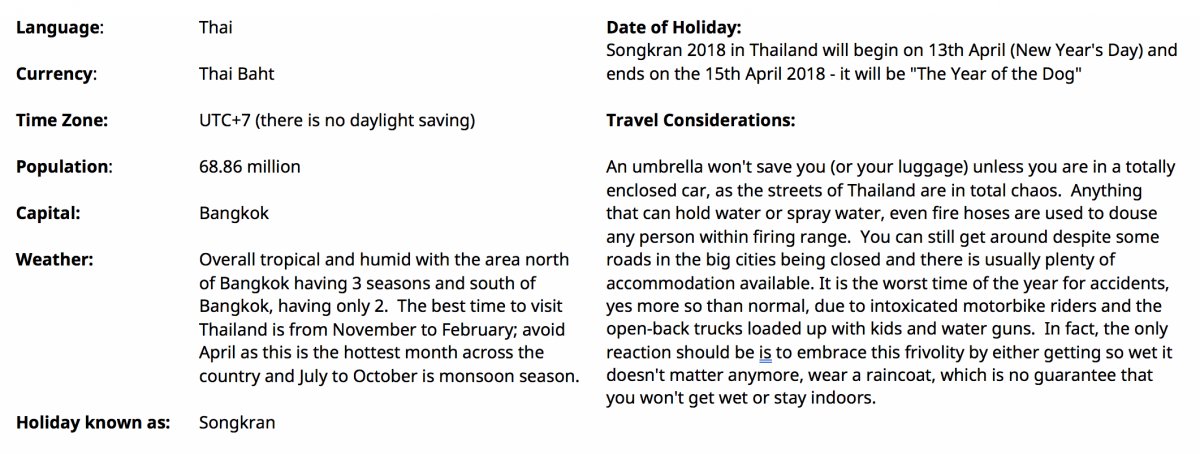
Gail Palethorpe, a self proclaimed Australian gypsy, is a freelance writer, photographer and eternal traveller. Check out her website Gail Palethorpe Photography and her Shutterstock profile.
Image Credits from top:
Street Party: James Antrobus @ Flickr
Kids Water Fight: Johan Fatengberg @ Flickr
Getting Wet: Anthony Bouch @ Flickr
Wet Getaway: Wyndham Hollis @ Flickr

